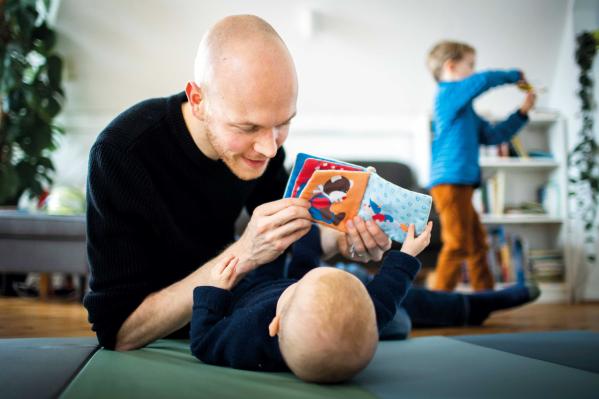Families and equality

Thanks to parental leave, parental allowances and high quality childcare services, Germany supports families and helps parents to participate equally in working life. Policy is also keeping pace with social changes. In 2022, roughly seven out of ten mothers with children under the age of 18 were in gainful employment. Since 1997, the proportion of employed mothers with under-age children has increased from 58% to 69%. Over two thirds of women who have children and are in employment work part-time.
Parental leave was introduced in 2007 and makes it easier for people to balance the demands of starting a family and developing their careers. The scheme allows both partners to take a break from their careers for up to three years. During this period parents are also given special protection against being made redundant. The parental allowance (“Elterngeld”) is designed to compensate when parents lose income because they are caring for children. It is worth between 300 and 1,800 euros, depending on previous income. This support is available for both parents for up to a total of 14 months. If both parents share in caring for their children, each parent can claim parental support for between 2 and 12 months. More and more fathers are taking up this offer and setting their jobs to one side for a few weeks or months.
Early re-entry into working life pays off
Nevertheless, it is still mainly mothers who remain at home for a relatively long period after the birth of their children. The Elterngeld Plus programme was introduced in 2015 to make it even more worthwhile for parents to return to work early. The scheme gives parents working part-time additional support for up to 28 months.
Since 01 August 2013 children have had a legal right to a nursery place upon reaching the age of one. Over 2.6 million children aged three or above attend a nursery or other form of childcare until they start school. As of 01 March 2023, 36.4% of children in Germany under 3 attend nursery or other childcare.
Gender equality
Parental leave, financial support and easier access to childcare have strengthened the basis for women’s equality, as required by the Basic Law The Basic Law The Basic Law determines that Germany is a constitutional state: All state authorities are subject to judicial control. Section 1 of the Basic Law is of particular relevance. It stipulates that respect for human dignity is the most important aspect of the constitution: “Human dignity shall be… Read more › . In some areas, young women have already overtaken their male counterparts in education. For example, women made up a good 52% of first-year students in 2022. Nevertheless, there remains a gap between the genders when it comes to earnings and career paths. Even where women hold the same formal qualifications and attributes, they still earn an average of 6% less than men. Women are still under-represented in managerial roles. The Federal Government Federal Government The Federal Government and cabinet is made up of the Federal Chancellor and the Federal Ministers. While the Chancellor holds the power to issue directives, the ministers have departmental powers, meaning that they independently run their respective ministries in the framework of those directives… Read more › is working actively to redress these disparities. In addition to direct support through programmes such as the parental allowance, legislation, such as regulations to promote transparency of remuneration, aims to close the gap between men and women. Quota requirements also ensure that women hold more managerial positions. The Federal Government is also working actively internationally to promote gender equality.


